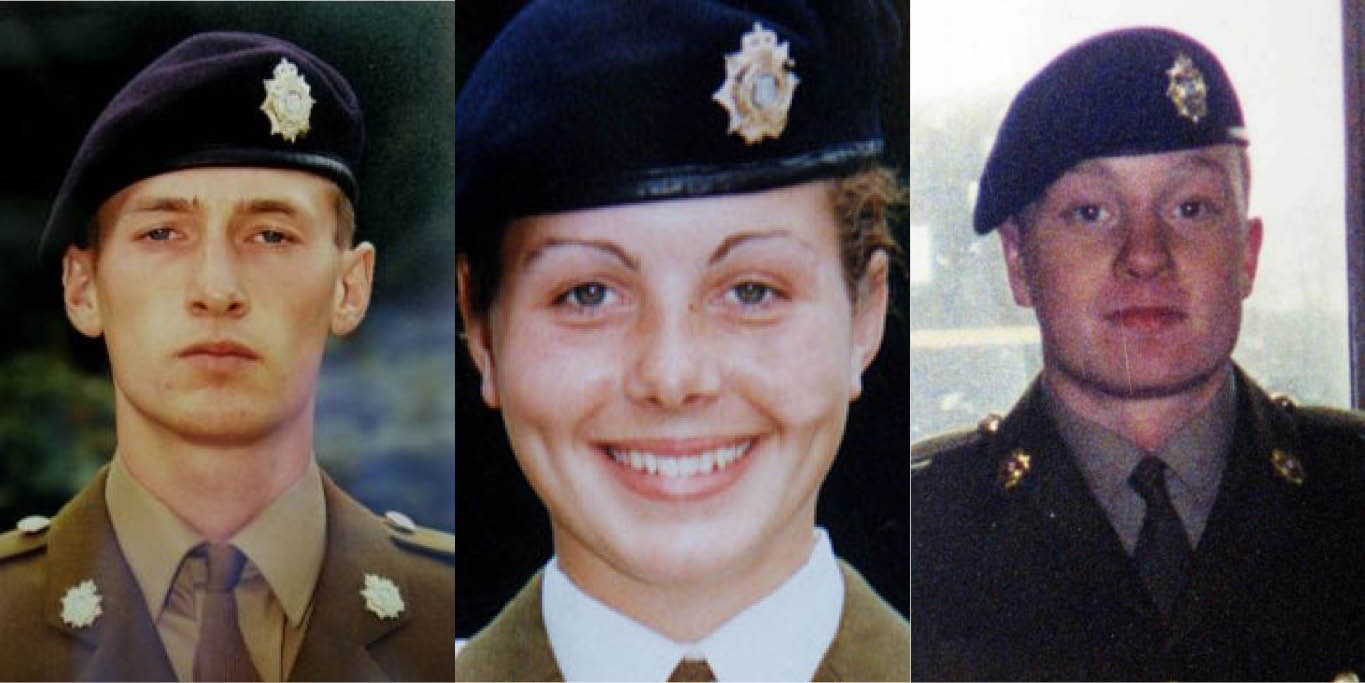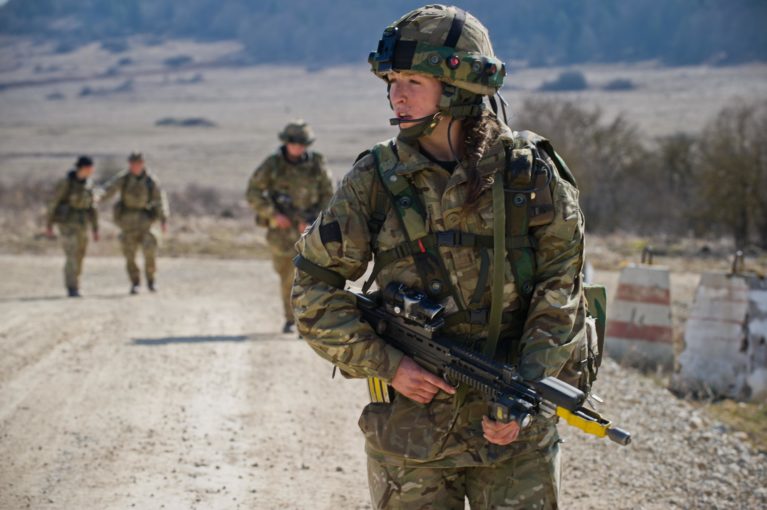Soldiers' rights
Our soldiers deserve first-rate justice
Posted by Emma Norton on 20 Mar 2018
The UK has two separate justice systems – one for soldiers, and one for the rest of us. Yesterday, an important criminal case being heard in the court martial – kept out of the public eye by reporting restrictions until now – collapsed. And it exposes everything that’s wrong with this second class system.
This was a criminal trial involving allegations that a number training instructors at the Army Foundation College in Harrogate had committed very serious assaults on children who had signed up as junior recruits.
Presiding over the court martial in Bulford, Judge Advocate Alan Large ruled that the accused couldn’t possibly have a fair trial because of a catalogue of serious failures by the Royal Military Police (RMP) – the Army’s own police force.
In what the judge described as a “frankly startling” breach of duty, the RMP decided not to interview highly relevant eye witnesses. “It reflects a totally blinkered approach to the police’s duty of establishing, fairly and objectively, what happened,” he said.
This bizarre decision not to carry out one of the most fundamental parts of any police service’s job made it impossible for the RMP to demonstrate that they had investigated independently and fairly, and will also have made it incredibly difficult for the Service Prosecuting Authority (the military equivalent of the Crown Prosecution Service) to prosecute the cases.
There was a long delay in the RMP’s collection of vital evidence, including photographs. If they’d seized this evidence, crucial information contradicting a number of the allegations would have been revealed at an early stage.
Some evidence, including additional photographs, was simply never obtained – and the accused training instructors weren’t even arrested and interviewed for more than two years after the initial allegations of assault.
Underpinning these failings is the RMP’s lack of resources and expertise. The investigating officer apparently referred to “staff shortages, positions being gapped, personnel posted away on career courses and the pressure from other more urgent enquiries”.
For the judge, these weren’t good enough reasons for the huge delays in the investigation – but, more fundamentally, he said: “the rationale behind having a separate justice system to serve the Armed Forces is that it provides a bespoke service which supports and maintains operational effectiveness. Taking over three years to complete this enquiry has manifestly not achieved that purpose.”
This is a searing criticism from a judge – and it goes right to heart of the issue. What is the point of having a separate policing system for the military?
The main argument is that it is portable – it provides a justice system in situations where soldiers are deployed abroad and which can be used where there is no credible local system. But that has no bearing when we are talking about alleged offences in the UK. Over the years, Liberty has seen devastating failures in cases the RMP has investigated at military bases in the UK.


When four young people died at Deepcut barracks between 1995 and 2002, three of the four deaths were investigated by the RMP. In each case, basic failures to preserve the scenes, gather crucial evidence and interview witnesses helped to make it almost impossible for the grieving families to find out what happened to their children. More than 20 years later, they are still fighting for answers.
Following these awful cases, the Ministry of Defence and civilian police forces confirmed that sudden deaths on military property must always be investigated by civilian police. But when it comes to cases of rape, sexual assault, physical assault, child sexual abuse and other serious crimes, military police can still investigate.
For Corporal Anne-Marie Ellement, who alleged she was raped by two colleagues, that policy meant a shoddy investigation that was ultimately dropped. Anne-Marie took her own life two years later. It took years of campaigning by her family for her allegations to reach court. Two men were acquitted, but the RMP formally apologised to Anne-Marie’s family for their “unsatisfactory” work.
There is no justification for the under-trained and under-resourced military police to investigate serious crimes in the UK. Offences committed on British soil should always be investigated by British civilian police.
This two-tier justice system is failing men and women who risk their lives fighting for our country. And when things do go wrong, there isn’t even an equivalent to the Independent Office of Police Complaints (formerly the Independent Police Complaints Commission) for soldiers and their families to turn to.
People serving in the Armed Forces face very different challenges to the rest of us – but that doesn’t mean they deserve second–rate justice.
I'm looking for advice on this
Did you know Liberty offers free human rights legal advice?
What are my rights on this?
Find out more about your rights and how the Human Rights Act protects them
Did you find this content useful?
Help us make our content even better by letting us know whether you found this page useful or not


